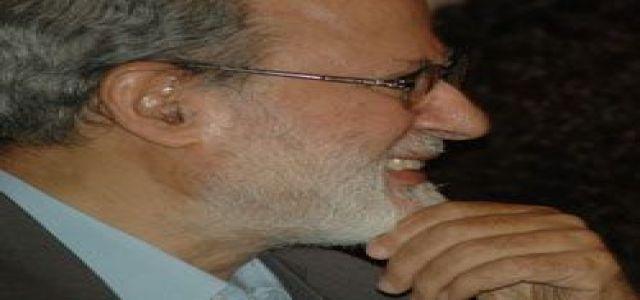- IranOther Views
- September 26, 2007
- 4 minutes read
Experts received MB program: call for religious state, Iranian-style

On September 18, the independent Egyptian Al Masry Al Yom daily carried the following report by Shayma” Abdul Hadi: “Political experts who received the program of the MB assured that the presence of a top scholars committee specializing in reviewing the decisions of the head of the state and the parliament was considered a step backward.
They said that this committee would turn Egypt into a religious state similar to Iran under Al-Khomeini. Dr. Wahid Abdul Magid, a member of the Wafd Party higher committee and the deputy director of Al Ahram political and strategic studies center, said: “The program was disappointing to those who were hoping the MB would benefit from its experiences”…
“He added: “The program was shocking and what was mostly dangerous in it was the fact it was undeniably the program of a religious state Iranian-style, i.e. one in which the religious reference is above the state and the elected institutions. This reference is represented in a council of scholars who holds the [ultimate] authority, just like it is held by the Supreme Guide of the Iranian revolution.
In Iran, the scholars” council holds the absolute and irreversible authority and among its tasks is the reviewing of the decisions and the laws issued by the different state institutions to make sure they go in line with the Shari”a in what renders the government, the parties and the parliament pointless”…
“He continued: “Unfortunately, the program was a step backwards in the position of the MB which had started to progress since the eighties toward integrating into modern political life, where there is no higher religious authority over the people and the community.
It made this step back at a time when the country needed its role. Through this program, it isolated itself and will not find anyone to cooperate with it except those who would accept this ludicrous image of a religious state which is only present in Iran”.
“He added: “… No person will be able to open his mouth because there will be a higher authority and a scholars” council in which women and the Copts would have no place… Through this program, the MB blocked the way before itself and chose to be against the people and against freedoms”…
“For his part, Dia” Rashwan, an expert on the affairs of Islamic groups and the head of the political systems” unit at Al Ahram studies center, said: “… The program placed religious direction ahead of the political direction.
Under the headline: Policies and Strategies, the political part featured a clear contradiction written in two ways, one stressing the Islamic Shari”a in what was [to be] reflected in the understanding of the state. It stated that Egypt was a civil state, and then said that the state had basic religious tasks which contradicts the creeds of non-Muslims”…
“He added: “It also placed illogical pretexts to exclude non-Muslims from running for president. It thus excluded over 60% of Egyptians who are non-Muslims, while women are not allowed to run in these elections to begin with. Hence, whoever will rule Egypt according to the MB program is part of the minority which only represents 40% of Egyptians”… He continued: “We have Islamic parties and MB groups in the Arab world. However, none of them addressed the issue of a religious committee. The utmost demand of the Justice and Development Party in Morocco was to have two scholars in the constitutional court”…
“For his part, Dr. Muhammad Habib, the first deputy to the MB general guide, said: “The preliminary draft of the program was sent to around 50 figures among academics and researchers to get more ideas and to show we are open to others. We will benefit from the opinion put forward and then formulate the final draft of the program”.
“Regarding the condemnations and rejections raised by the experts over the proposal to have an elected religious committee, Habib said: “The committee will include top scholars whose opinions will be taken into consideration before issuing legislations. This is a consultative opinion and if there is ever an objection, it could be taken up with the higher constitutional court. As for women and the Copts, they are represented in the parliament and not in the religious committee…” –



